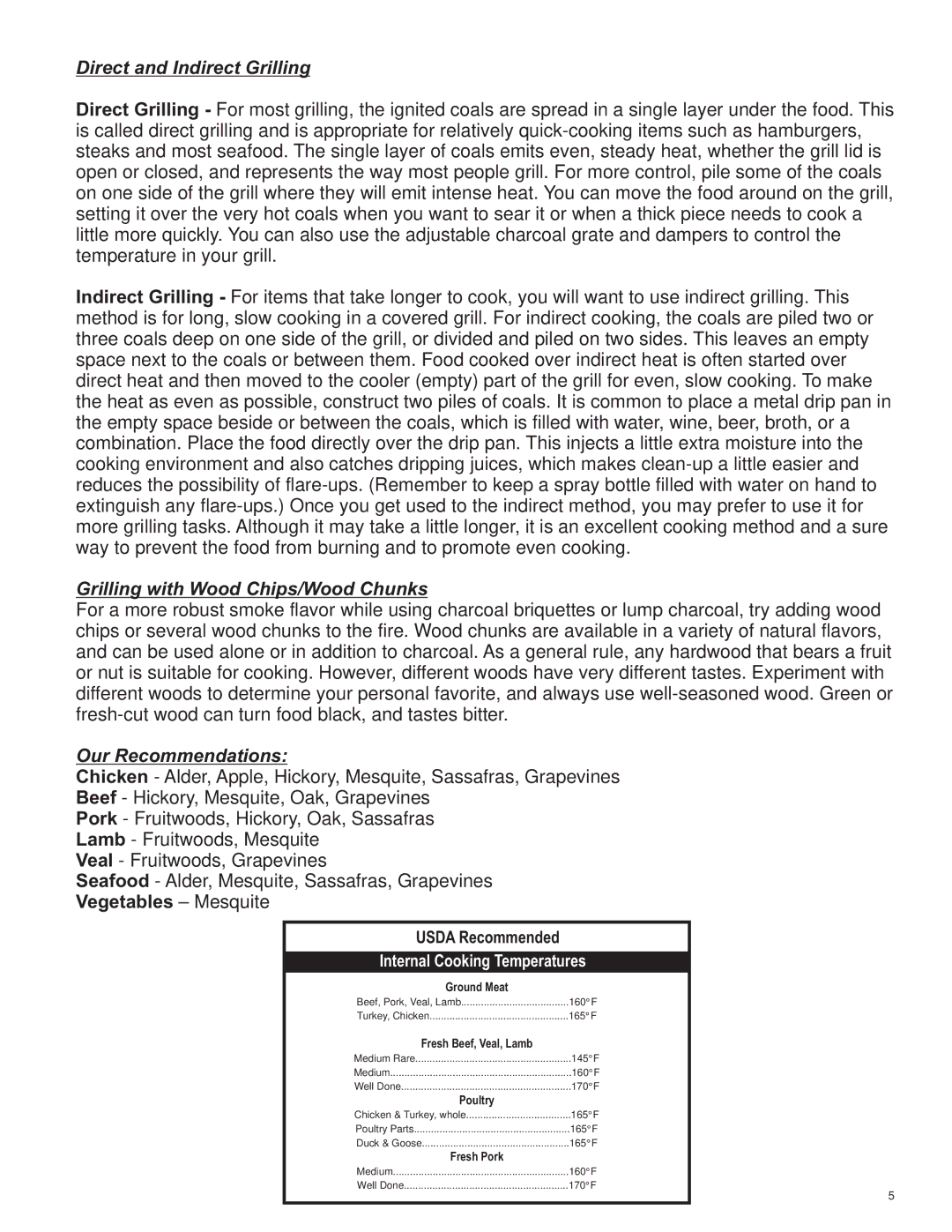
Direct and Indirect Grilling
Direct Grilling - For most grilling, the ignited coals are spread in a single layer under the food. This is called direct grilling and is appropriate for relatively
Indirect Grilling - For items that take longer to cook, you will want to use indirect grilling. This method is for long, slow cooking in a covered grill. For indirect cooking, the coals are piled two or three coals deep on one side of the grill, or divided and piled on two sides. This leaves an empty space next to the coals or between them. Food cooked over indirect heat is often started over direct heat and then moved to the cooler (empty) part of the grill for even, slow cooking. To make the heat as even as possible, construct two piles of coals. It is common to place a metal drip pan in the empty space beside or between the coals, which is filled with water, wine, beer, broth, or a combination. Place the food directly over the drip pan. This injects a little extra moisture into the cooking environment and also catches dripping juices, which makes
Grilling with Wood Chips/Wood Chunks
For a more robust smoke flavor while using charcoal briquettes or lump charcoal, try adding wood chips or several wood chunks to the fire. Wood chunks are available in a variety of natural flavors, and can be used alone or in addition to charcoal. As a general rule, any hardwood that bears a fruit or nut is suitable for cooking. However, different woods have very different tastes. Experiment with different woods to determine your personal favorite, and always use
Our Recommendations:
Chicken - Alder, Apple, Hickory, Mesquite, Sassafras, Grapevines
Beef - Hickory, Mesquite, Oak, Grapevines
Pork - Fruitwoods, Hickory, Oak, Sassafras
Lamb - Fruitwoods, Mesquite
Veal - Fruitwoods, Grapevines
Seafood - Alder, Mesquite, Sassafras, Grapevines
Vegetables – Mesquite
USDA Recommended
Internal Cooking Temperatures
Ground Meat |
|
Beef, Pork, Veal, Lamb | 160°F |
Turkey, Chicken | 165°F |
Fresh Beef, Veal, Lamb |
|
Medium Rare | 145°F |
Medium | 160°F |
Well Done | 170°F |
Poultry |
|
Chicken & Turkey, whole | 165°F |
Poultry Parts | 165°F |
Duck & Goose | 165°F |
Fresh Pork |
|
Medium | 160°F |
Well Done | 170°F |
5
